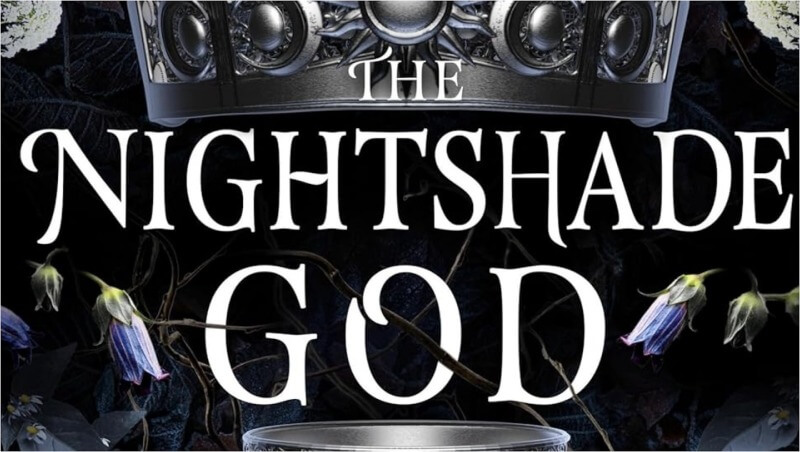The Nightshade God Is an Unhinged, Chaotic, and Thoroughly Satisfying Series Conclusion

The third installment in a trilogy is notoriously tricky. Can the third and final book in a series successfully wrap up all the outstanding plot points and narrative threads? Give every character a satisfying ending? (Or at least a comfortable stopping point?) Answer all the lore-related questions readers might have? Plenty of popular book series have failed this last hurdle, leaving an unfortunate stain on a story that was otherwise great. And while the final instalment in Hannah Whitten’s Nighshade Crown trilogy, The Nightshade God, isn’t perfect, it more than sticks the landing when it comes to giving its characters the bonkers, chaotic, and thoroughly them ending that the series deserves.
Picking up almost immediately after the cliffhanger that closed the second book, a dethroned Lore is now a prisoner on the Burning Isles, a prison colony for traitors where she’s forced to do hard labor to secure the basics of survival. Bastian is king of Auverraine, but now fully controlled by the life god Apollius, who’s busy embracing his villain era, making deals with despots, undoing many of the reforms Bastian and Lore implemented, and just generally being a menacing jerk to all around him. As for Bastian himself, he experiences brief moments of lucidity and awareness as he tries to break free of the golden sea of his mental prison. Former Priest Exalted Gabe is now on the run in the neighboring kingdom of Caldien, with Presque Mort brothers Malcom and Michal, as well as both of Lore’s mothers in tow. And noblewoman Allie, now revealed as Bastian’s secret half-sister, remains in Dellaire, engaged to a former enemy of the kingdom and faking loyalty to the new regime even as she does her best to find a way to free Bastian from Apollius’s control. Things are complicated by the fact that it’s now not only Lore and Bastian who have ancient gods in their heads; Gabe, Malcolm, and Allie all have magical passengers of their own, with accompanying special abilities.
The group’s best chance to thwart Apollius’s plans for world domination involves restoring the mystical location known as the Fount, the location where the gods first claimed their power. There, they can use it to return all magic to its source and banish the gods once more. Conveniently, the three missing pieces of the Fount seem to be located in each of the disparate areas where the story’s main characters happen to be, so the race is on to track them down and reunite on the so-called Golden Mount, where the ritual must be completed.
-

-

-

-

-

-

-

-

-

-

-

-

-

-

-

-

-

-

-

-

-

-

-

-

-

-

-

-

-

-

-

-

-

-

-

-

-

-

-

-








































